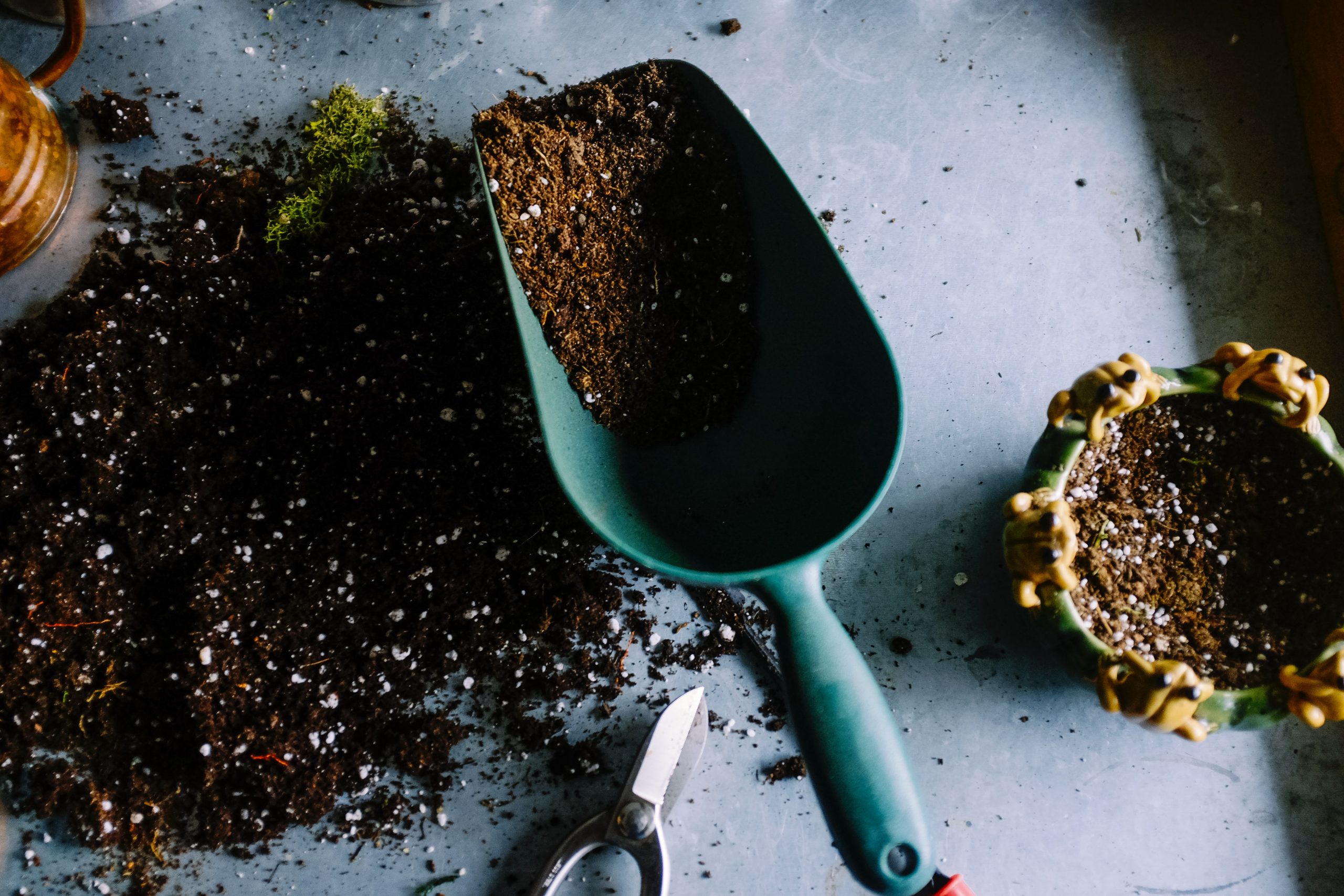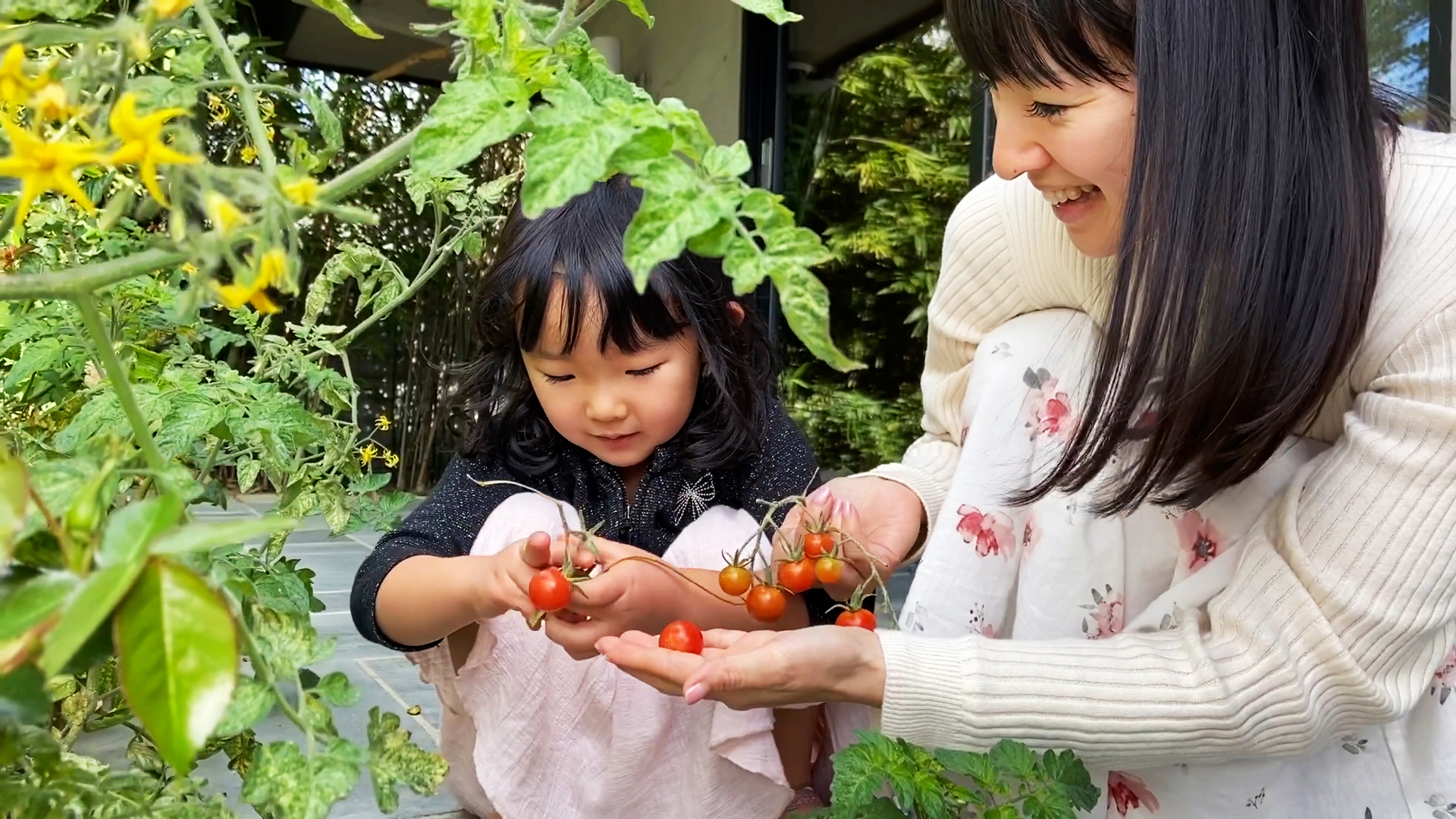Mindful discarding is at the heart of the KonMari Method™. Starting a compost at home, even in small apartments is a simple way to let go of food with gratitude — and stay in touch with the soil that feeds us.
To demystify the process, we spoke with Michael Martinez, founder and executive director of L.A. Compost about composting at home. His first piece of advice is to trust yourself — and just do it. “Compost is very forgiving,” he says. “Making mistakes is part of the process, but you’ll always get something out of a pile.”
Why Compost at Home?
Even though food scraps are organic matter, the conditions in landfills make it impossible for them to decompose naturally — after being thrown out, our wilted lettuce leaves and overripe avocados turn into methane, a greenhouse gas that contributes to global warming.
“Nature is in a constant cycle of regeneration,” says Martinez. “In the natural world, there’s no such thing as waste. Composting returns organic matter to the environment and improves soil health. It’s a reminder that everything we discard ends up somewhere else.”
Composting ensures that resources — like healthy soil, green spaces and food — stay local. Plus, Martinez adds, spending time outside, fingers in the dirt, has the added bonus of improving mental and physical well-being and strengthening ties within communities.

It Starts With Shopping
Eliminating food waste begins at the grocery store. The key to not overbuying is a tidy fridge and pantry so you know how much food you have at a glance.
Marie recommends the following tips:
- Organize your items by category and store like with like.
- Use small boxes or storage containers for individually wrapped items — or anything that could be easily obscured.
- Store taller items behind shorter ones so you can see what you have.
- Avoid stacking items on top of each other so you can easily access what you need.
A too-full refrigerator can be tough to navigate — but sometimes we need to stock up. If you can’t see all of your foodstuffs at a glance, make a list of your perishables and put it on the refrigerator door so they’re top of mind. Prioritize foods with a shorter shelf-life — or ones about to expire — and plan your meals accordingly. Knowing what you have on hand means you can cook — and eat — with less stress and more gratitude.
What You Need to Succeed
Yes, you can start a compost in an apartment. Whether you live in a small studio or have access to a yard, you’ll need a container to collect food scraps throughout the week. Once it’s full, Martinez recommends transferring your scraps to the freezer for a few days to speed up the decomposition process. Storing your compost in a small bin or reusable bag in the freezer is also great for apartments to reduce unwanted smells.
These nitrogen-rich food scraps are your “green” materials — coffee grounds (and filters), eggshells, vegetable trimmings, onion skins, flowers, etc. Do not compost meats, fats, dairy products or oils — they tend to rot, rather than decompose, and can attract rodents and bugs.
If you’re making your own compost pile, here’s what else you’ll need:
- A steady supply of “brown” materials that are high in carbon — things like dry leaves, pine needles, straw, wood chips, shredded newspaper, dried flowers, paper towels and mulch.
- A bin big enough for your needs.
- A pitchfork to turn your pile and keep it aerated.
- A garden hose — or a way to keep your pile damp.
The Steps
The key to successful composting is to layer your materials like a lasagna: equal parts green to brown. Cut up or break apart big pieces to move the process along. Then, add water. You want your pile damp but not dripping, says Martinez, like a wrung-out sponge.
Next: Stir! Use your pitchfork to shake things up and introduce plenty of oxygen into your pile — the microorganisms responsible for decomposition rely on oxygen to thrive. Check your pile throughout the week, adding water and stirring as needed. A regularly turned pile will break down more quickly than a neglected one.
Troubleshooting tips: If your pile starts to smell bad, turn it more frequently and increase the amount of brown materials. If it’s too dry, it likely needs more greens.
“Composting is an expression of gratitude for the earth — a reminder of the vital role we each play in our larger ecosystem.”
No Yard? No Problem: How to Compost in an Apartment
For city dwellers with no green space of their own, Martinez recommends tapping into your neighborhood. Community gardens, farmer’s markets, schools, parks and even apartment complexes may have their own composting system you can contribute to. For a state by state list of resources, click here.
Composting is an expression of gratitude for the earth — a reminder of the vital role we each play in our larger ecosystem. Whether you turn your food waste into a nutrient-rich booster for your herb garden or drop it off at a local composting hub, you’re improving the lives of those around you.




